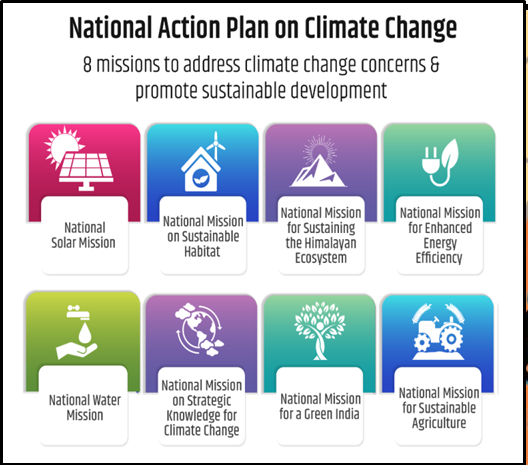INDIA INC POISED FOR GLOBAL LEADERSHIP IN CLIMATE ACTION
Why in the news?
India’s industry leaders are stepping up global climate action roles, with key appointments and ambitious renewable energy goals, positioning India as a potential leader in the clean-tech sector.
source:slideshare
Key Developments:
- Indian industry has the potential to take on a global leadership role in climate action.
- Sumant Sinha, CEO of ReNew, appointed co-chair of the Alliance of CEO Climate Leaders.
- Indian companies, including Reliance Industries, actively participate in global climate initiatives.
- India assumed the presidency of G20 and Clean Energy Ministerial in 2023, with significant industry involvement.
India’s Climate Goals:
- Aiming for net-zero emissions by
- Targeting renewable sources for 50% of energy needs by
- Plans to achieve 500 GW of fossil fuel-free generation capacity by
- Requires quadrupling annual wind and solar capacity installations and adopting green hydrogen.
Strategic Actions Needed:
- India should position itself as a global manufacturing hub for clean-tech products.
- Strengthen ties with EU and US trade bodies and corporations.
- Enhance US-India clean energy partnerships to access advanced climate technologies.
- Align Indian policies with international standards and transition legacy industries like oil, gas, steel, and cement towards decarbonization.
India’s Actions Regarding Climate Diplomacy:
Intended Nationally Determined Contributions(INDCs):
Global Contributions and Initiatives:
|




